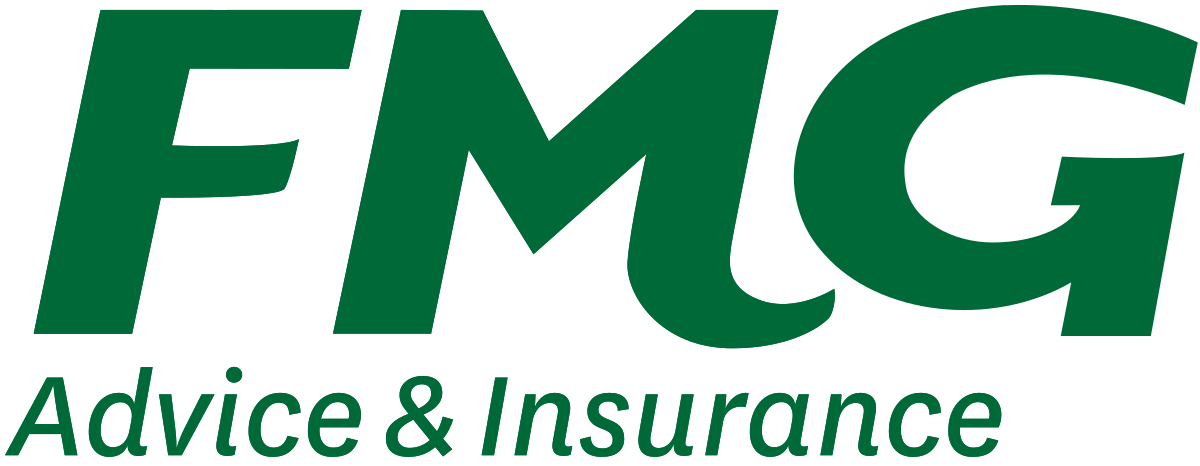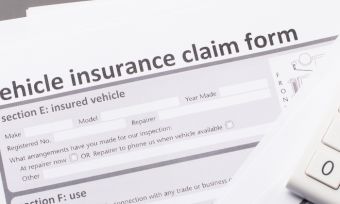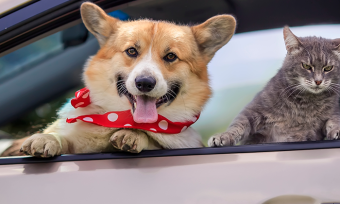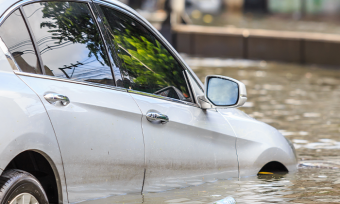After a car accident, you’re often in shock. When that fades, you can feel any number of different emotions – all of which are totally normal.
In most car crashes, the traumatic event happens unexpectedly, so you may feel you were unprepared or powerless to stop it. When you look at it this way, the emotions that you experience after a car accident make much more sense.
Eventually, once the car is repaired (or replaced), insurance companies dealt with, and physical injuries healed, these feelings and reactions will fade. But if you’re struggling after a crash with your whānau ora (mental health and wellbeing), it’s important to get help.
There are many organisations in New Zealand where you can get free help if you feel like these emotions are lasting longer than they should, or stopping you from doing your normal daily activities.
Emotions to expect after a crash
Shock, denial, or disbelief
Immediately after a car accident, and for several days afterwards, people usually experience being in shock. Shock can feel different for everyone, but common symptoms include feeling numb, being in emotional distress, continuing to feel afraid even though the event is over, or having unpredictable mood swings.
You can also experience shock after an accident even if you weren’t driving the car at the time, if you were a passenger, a pedestrian walking past, or even an observer in another car nearby.
Anger, irritability, agitation
After an accident, the driver can feel angry at the driver of the other car, whether they were at fault or not. Many passengers can also feel angry at both the drivers involved in the accident.
It’s easy to take this anger out on everyone around you when these irritated, agitated feelings continue. The feelings are a valid part of your stress reaction, and it’s good to know you don’t have to act on them. A helpful way to deal with feelings of anger is learning some simple relaxation breathing exercises that can help you calm down when these feelings arise.
If you’re a parent trying to help your teenage child who was involved in a car crash, they may not want your support and can seem angry at family members. Allow them to turn to their friends instead for a short time, but keep the lines of communication open so they can still talk with you when they’re ready.
Guilt, shame, self-blame
Many drivers beat themselves up over the accident, especially if they think it was avoidable. Sometimes even those who witness a crash can blame themselves for not being able to prevent the crash or provide first-aid, or other ideas they may have about what they “could have done”. It’s helpful to remind yourself that these expectations of yourself are not realistic.
Anxiety, worry, fear
Anxiety is a natural reaction to a stressful incident such as a car accident. Some people experience no symptoms of anxiety at all after a crash, and most people who do experience anxiety will recover in time.
Common symptoms include:
- Worrying
- Unable to relax or sleep properly
- Finding it difficult to concentrate
- Feeling unsociable, not wanting to talk
- Feeling upset, confused, out of control, or helpless
- Having no energy
- Feeling irritable
- Keeping busy to avoid thinking
- Unwanted thoughts
One of the easiest ways to fight anxiety is to talk about it. If you can, it’s helpful to talk about the accident and your feelings with the people you trust. Family, friends, and a qualified counsellor or psychologist can really help. Your healthcare professional may prescribe anti-anxiety medications or antidepressants in addition to talk-therapy.
Returning to your normal routine is also a great anxiety-buster. But give yourself time, and be patient with what you are feeling. Taking care of yourself even when you’re feeling anxious is vital. Eat balanced meals, get plenty of sleep, and try to exercise regularly.
Avoid alcohol, cigarettes and drugs, since these may feel good at the time but actually make anxiety worse. Replace these things with your favourite hobbies instead, to keep your body relaxed.
Compare Outstanding Value Car Insurance with Canstar
Looking for great value car insurance for you and your family? Each year, we release our car insurance awards, including winners for Insurer of the Year, Outstanding Value, and Most Satisfied Customers. As part of our award results, we also publish our Outstanding Value Star Ratings, covering car insurance for different age groups. Below are our top-rated providers in the drivers aged 30-49 category. Click here to view our complete car insurance Star Ratings for all age groups.
Comprehensive Cover: Drivers 30-49:
| Provider | Star Rating |

Car Insurer of the Year |
 |
 |
|
 |
 |
See here for our ratings methodology. The table above is an abridged version of our research. For the full results of our latest Car Insurance Ratings and Award, click here.
If the anxiety doesn’t go away:
You should seek help from a professional counsellor if your anxiety has lasted longer than 3 months after the accident, if it’s stopping you from doing your job or schoolwork, or if your family and friends say they’re worried about you.
These things can mean that you have developed an anxiety disorder like PTSD (post-traumatic stress disorder), which involves flashbacks and still becoming distressed when you think about the accident. This doesn’t mean that there’s something wrong with you. It just means that you will need extra help to tackle the anxiety and move on with your life post-accident.
Getting back in the car:
Most people will eventually have to get back in the car after an accident. It is very normal to feel anxious about returning to driving, and driving more cautiously than before.
Driving again is possible, and can even be helpful in conquering your anxiety sooner. But you shouldn’t expect yourself to just “get over it” straight away, and you may find that anxious feelings arise after you have already returned to the road.
Sadness, hopelessness
Feelings of sadness or depression after a road accident are very common, and often go hand-in-hand with the symptoms of anxiety. As with anxiety, the best way to treat depression is to talk about it, take care of yourself, and get help when you need it.
Social withdrawal and isolation
During shock, it’s natural to steer clear of people who may want to talk about the crash. But when this fades, your feelings can be countered by surrounding yourself with family and friends to receive love and reassurance.
Physical symptoms that come with these emotions
After an accident, the emotions of shock, anxiety, or depression can cause the following physical symptoms, which tell you that your body is currently stressed out:
- Insomnia, nightmares
- Racing heartbeat, dry mouth
- Fatigue, low energy
- Muscle tension, aches, pains
- Headache, stomach distress
- Crying spells
- Hypervigilance, exaggerated startle response
Mental (cognitive) symptoms that come with these emotions
- Confusion, difficulty concentrating, forgetfulness
- Intrusive memories or flashbacks
Self-help strategies
- Take time to rest and recover. You’ll likely be unable to jump straight back into life, especially if you’re injured, so try not to beat yourself up about being “lazy” or “unproductive”.
- Take care of yourself. Eat a balanced diet, exercise often, and get plenty of sleep and rest.
- Keep a balanced schedule between work/school and home. Try to stick to your normal daily routine and activities.
- Talk about your experience with your family, friends, qualified counsellors, or other advisors.
- If other family members were involved in the crash as well, talk about the crash as a family and let them know that it is helpful to share their thoughts and feelings. Try not to argue about who was to blame for the crash. Give each other plenty of love and reassurance.
- If a child or teenager was involved in the crash, make sure that their school teachers and the principal know about the crash and are willing to cut them some slack. Let your child know that you have spoken with their teachers, so they know you didn’t go behind their back.
Where to get more help
New Zealand has several organisations dedicated to helping you get the help and treatment you might need for your whānau ora (mental health and wellbeing), and information about self-help strategies:
- Lifeline: Phone 24/7 helpline on 0800 543 354 or text 4357 . Or 0800 376 633/ text 234 for Youthline.)
- DHB Mental Health Crisis Team (CATT team): Phone Healthline on 0800 611 116 to find your local CATT team.
- Balance New Zealand: Great information about different mental health problems and online support groups you can join. Call 0800 10 25 55 or text 021 262 8370.
- Depression Helpline: Phone 0800 111 757 or text 4202 to talk to a trained counsellor or ask questions, or use The Journal online help service.
- SPARX.org.nz: An online e-therapy tool for young people learning to cope with depression or stress (created by the University of Auckland).
- Skylight: Phone 0800 299 100 for support from a trained Counsellor.
- New Zealand Psychological Society: Find a psychologist near you. You can also get a referral for counselling from your local GP. There are even organisations of counsellors for particular faith backgrounds, e.g. the New Zealand Christian Counsellors Association.
- The LowDown: Online forums and information or speak with counsellors for free (ph: 0800 111 757 or txt: 5626)
- Anxiety NZ: Provides education and support around anxiety. Free 24/7 support at 0800 AXIETY (0800 269 4389)
- Whatsup: Free helpline and online chat service for young people aged 5-18. Call 0800 WHATSUP (0800 942 8787) or online chat is available.
About the author of this page
This report was written by Canstar Content Producer, Caitlin Bingham. Caitlin is an experienced writer whose passion for creativity led her to study communication and journalism. She began her career freelancing as a content writer, before joining the Canstar team.








Share this article